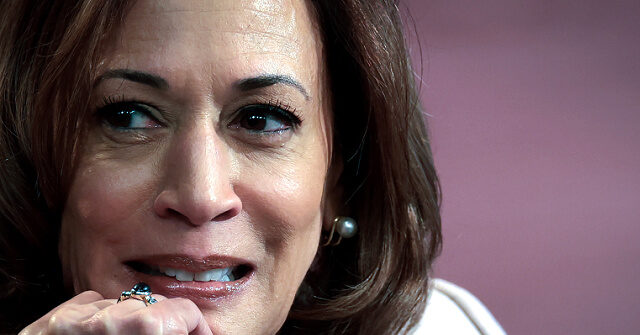Vice President Kamala Harris recently announced a significant shift in the focus of her “Agenda for Black Men,” repurposing it to benefit a broader audience rather than exclusively targeting the Black community. This decision arises from polling that indicates Harris is struggling to garner support from Black voters, achieving approximately 12-15 percent less backing than President Joe Biden’s 2020 campaign. As a result, her campaign has decided to present the proposals under this agenda on a “race-neutral basis,” indicating that the benefits will be open to all Americans, regardless of race. This marks a pivotal change in her approach, reflecting the broader dynamics of her campaign and the challenges she faces in securing voter support from this demographic.
The change in the agenda raises questions about the legality and efficacy of targeted policies, with the Wall Street Journal highlighting that while Harris’s initial message aimed to specifically assist Black individuals, the detailed implementation now suggests broader inclusivity. The campaign announcement mentioned that while Black men and women would be a focus, the programs listed would extend to “others,” thereby minimizing the racial specificity of the initiatives. Such adjustments may reflect a strategic recalibration not only to align with legal considerations but also to appeal to a wider electorate amidst declining support.
Harris’s campaign points to her awareness of the historical obstacles faced by Black men concerning wealth creation and employment opportunities. A campaign aide emphasized that her solutions will target the unique barriers to economic opportunity while benefiting all Americans. However, this pivot raises concerns about whether it adequately responds to the distinct issues faced by Black men, which may very well have motivated their initial support for her as a candidate in the first place. As she navigates these challenges, her intentions appear to balance inclusivity with specific advocacy.
The political landscape in which Harris is operating has become increasingly complex, particularly following judicial shifts under Chief Justice John Roberts. The conservative-leaning Supreme Court’s recent rulings, which found affirmative action policies unconstitutional, demonstrate a growing reluctance among lawmakers and judges to endorse racial preferences in public programs. This legal climate compels Harris to reconsider the framing of her proposals, as potential backlash not only threatens voter support but can also lead to legal repercussions that undermine her policy initiatives.
The proposals detailed by the Harris campaign include a range of community-oriented initiatives, such as the legalization of marijuana, new loan programs aimed at entrepreneurs, and enhanced health screenings. This broad spectrum of potential legislation might be seen as an attempt to shore up her political standing, particularly among Black men, whose support for the Democratic Party has waned. Polling data shows that only 70 percent of Black men expressed intent to vote for Harris, a notable drop from Biden’s 85 percent support in 2020. Recognizing this trend, prominent Democrats, including former President Barack Obama, have called for renewed engagement from Black voters, highlighting the urgency to address their needs directly.
As the Harris campaign seeks to rejuvenate support from this critical demographic, the adjustments made to the “Agenda for Black Men” could either successfully bridge the gap or further alienate voters who feel overlooked. The disconnect between the Democratic Party’s historical association with civil rights and the current sentiment reflecting a lack of representation particularly among younger Black men underscores the need for an effective, responsive approach. Harris’s new policy direction may confront these concerns, acknowledging the nuanced experiences within the Black community while aiming to create an inclusive space that ultimately resounds with all voters ahead of the upcoming election.

